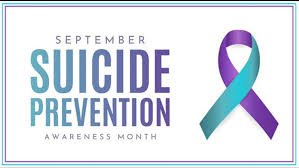 Meaning and Purpose
Meaning and Purpose
Finding meaning in life creates for one a general sense of purpose. It is the fire that ignites from within us and propels us.
Purpose in life can be defined as having a central, self-organizing life aim as well as an overall sense of direction and intentionality in one’s life. It further includes the extent to which individuals consider their life activities to be valuable and important. Research on purpose in life has suggested that there are moderate to strong links to improved physical health, greater physical activity, improved mental health, greater coping with chronic illnesses/diseases and disability, less cognitive decline through aging, improved physical recovery after injury, and reduced all-cause mortality.
Purpose has been likened to a compass that provides an overall aim in life that directs life goals, guides decisions, and allocates finite personal resources. Meaning and purpose are frequently used interchangeably, and they considerably overlap. They contribute a sense of coherence (of one’s life), goal striving, sense of direction, future time perspective, life satisfaction, and the importance and value of daily activities.
In addition, the essence of purpose and meaning can refer to the motivational element where life’s challenges are welcomed as worthy of energy, commitment, and engagement. This means that with purpose and meaning, one has the capacity to stimulate goals and follow through to a desired outcome, irrespective of the detours and how daunting the process may be.
Suicide and its Relation to Purpose and Meaning
What happens when an individual has lost their ability to stimulate goals, and see them to their desired outcome? Many things; but primarily a sense of purposelessness and hopelessness.
Meaning/purpose of life, or lack thereof, is significantly associated with suicidal ideation, especially in young people.
Suicidal ideation refers to thinking about or formulating plans for suicide. The ideation exists on a spectrum of intensity, beginning with a general desire to die that lacks any concrete method, plan, intention, or action and progressing to active suicidal ideation, which involves a detailed plan and a determined intent to act on the ideas. Suicidal ideation is closely associated with both suicidal attempts and deaths, serving as a significant risk factor for future suicide attempts.
Suicidal thoughts and actions are often viewed as a single concept, whereas passive thinking, active planning, and actual behavior are seen as a continuous spectrum. A helpful analogy is to view suicidal ideation as the more significant, unseen portion of an iceberg, with the act of suicide as the visible tip. This perspective emphasizes the need for early identification and targeted intervention of those with suicidal ideation to prevent progression to suicide.
Psychological wellbeing; an array of positive functioning behaviors, cognitions, and attitudes, plays a key role in suicide prevention. Included in this definition are six separate constructs: purpose in life, autonomy, environmental mastery, personal growth, self-acceptance, and positive relations with others.
Note: Assessing suicidal ideation is an early warning for subsequent suicidal acts and also offers valuable insights into the patient’s level of suffering and their specific needs. Only a subset of patients with suicidal ideation will carry out the act. Nevertheless, suicidal ideation accompanied by intention and a specific plan is a psychiatric emergency and needs to be aggressively managed.
So, if anyone around you is feeling hopeless or seems to have lost meaning in life, encourage them to seek professional support. On your part, be there for them, to the extent that you can, ensuring that they do not isolate themselves.
Listen. Be a source of comfort. Be someone that your circle can reach out to.
If any of us here have struggled with suicidal thoughts and/or ideations, I cannot begin to imagine how difficult that has been for you. Seek professional help, and let’s work through life’s challenges together. Find a purpose, small though it may be. Try to read a book, one page. Look outside the window. Step outside the house. Feel the wind, or the sun in your face. Whatever it is, I beseech you, try. The winter winds do not stop the flowers from blooming, it is said.
For any of us that have attempted suicide, we are glad that you are still here with us. There is no shame in your suffering. We extend ourselves to you.
Bottom line, take small steps. You will fall, yes. But I believe you will get back up, no matter how long it takes.
Learn to ask for help, lean on someone, or a community.
This is your #WellnessWatch
With Nyaguthii Kariuki
Consultant Psychologist


